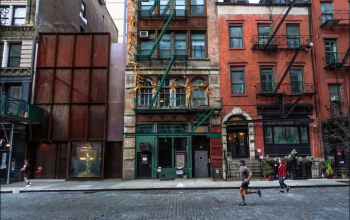
Like death and taxes, maintenance fee increases are one of the sure things in life
A New York City co-op owner recently said writing a maintenance check was like going to the dentist. It’s always painful but can’t be avoided. Maintenance fees, unlike most mortgage payments, which are fixed and do not increase over the period of the loan, almost always increase from year to year. This wouldn’t be so bad if service improved – better heating system,
24-hour doormen, new hallway rugs – came along with those increases; but they rarely do.
According to StreetEasy, a popular real estate listing portal for New York City, maintenance fees increase, per year, by “a few percentage points.” To make matters worse, those increases are usually above the annual inflation rate of around 2%.
What is driving these increases where you pay more for the same service? Isn’t there a board of directors whose job it is to look out for the best interests of owners? That certainly includes controlling run away maintenance fees.
Uncontrollable fixed costs
The sad fact is that most of these cost increases are out of the control of co-op or condo boards or anyone else for that matter. These are often fixed expenses that are necessary to efficiently run a multi-unit building. Let’s take heating oil, for example. If you live in California, you probably don’t even know what that is. Here, however, it’s a major fixed cost that cannot be avoided unless occupants plan on burning their furniture in the winter to stay warm. And like the price of gasoline at the pump, the price is going up. And unless you’re a member of OPEC or Exxon, there’s nothing you can do about it either. Those price increases get passed on to you, the co-op, condo owner or renter.
Other expenses such as paying window washers, buying garbage cans, maintaining the boilers, taxes, superintendent salaries are fixed costs of running a building. These are things that become more costly over time. Window washers and doormen want raises, and they have a union which fights to get better pay for their members. Boilers need maintenance, taxes go up and like the sun raising in the east every morning, you, the renter or owner, foot the bill.
Sometimes unanticipated things come up that drive increases in maintenance fees, such as leaky roofs, boilers breaking down or city building inspectors finding something not up to code that has to be fixed immediately. Lawsuits can also cost a building a lot of money. If a visitor slips in the lobby and claims the janitor didn’t mark the area where the floor was wet, you’ll be paying costly legal fees whether the accident was the building’s fault or not. Most building have money set aside for things like this, but sometimes not enough.

The big “whack” assessments
If it starts raining on the inside of your apartment or, one night, your bedroom feels like a cold storage locker, you may very well be in for some unexpected and costly expenses. If your building’s piggy bank doesn’t have the funds to fix major facility breakdowns, the dreaded “assessment” notice note will be slipped under your door.
These repairs can be costly and run into the hundreds of thousands of dollars. Insurance often doesn’t cover these expenses because their cause is just the wear and tear of old age. This is particularly true in New York City where the housing stock is among the oldest in the U.S.
Assessments are also applied when a building decides to do some “capital improvements” such as re-wallpapering hallways, remodeling the lobby or re-tarring the roof before it springs a leak. These types of expenses are not usually covered by the funds generated from monthly maintenance fees.
At least assessments that pay for improving the look of your building add value to your property when you go to sell it. Buyers are turned off by dated hallway wallpaper, stuff better suited for a ‘70’s disco rather than an Upper East Side co-op.
What goes up doesn’t always come down
People often ask; why, for example, does my maintenance fee not decrease when the price of heating oil decreases? What often happens is the board inevitably finds something else to spend the savings on. There’s almost always some financial hole to plug somewhere, or a ratty hallway rug that needs replacing. Sometimes these savings may be reflected in smaller annual maintenance fee increases. Instead of a 4% increase, you may only get a 2% increase that year.
When maintenance cost aren’t going up fast enough
Yes, this is not a typo. If a building hasn’t seen their maintenance fees increase over several yearsthen there is something is wrong. Some building boards have been known to defer rate increases for a couple of years only to increase them dramatically in year-three. Most scary is when a building’s maintenance fees are significantly below the market rate, and have been so for a long time, this could mean that a building is being neglected. Often, deferred maintenance results in a catastrophic breakdown that requires massive funds to fix. Had the board allocated funds for routine maintenance, these problems could usually be prevented. If you are buying into a co-op that has really low maintenance fees, check it out before you buy, otherwise you may be in for a nasty surprise later on.
There’s a new website www.gohomeny.com that help buyers and renters get the inside scoop on buildings in New York. They publish information not easily attained by non- building residents. This information can prevent those nasty and costly surprises that happen sometimes AFTER the lease or closing documents have been sighed. Once the ink has dried, that’s not much you can do.
Increased maintenance fees are simply a fact of life in New York City. It’s one of the costs of living in the most exciting city in the world. If you want to see your maintenance fees decrease, move to Detroit.
Be Heard at Go Home NY
Be heard! Leave your apartment, condo, and coop building reviews at Go Home NY! Know a building's managers are awful? Have the inside line on a perfect building? Anything in between? Express your voice and be heard. Leave a review at Go Home NY.


